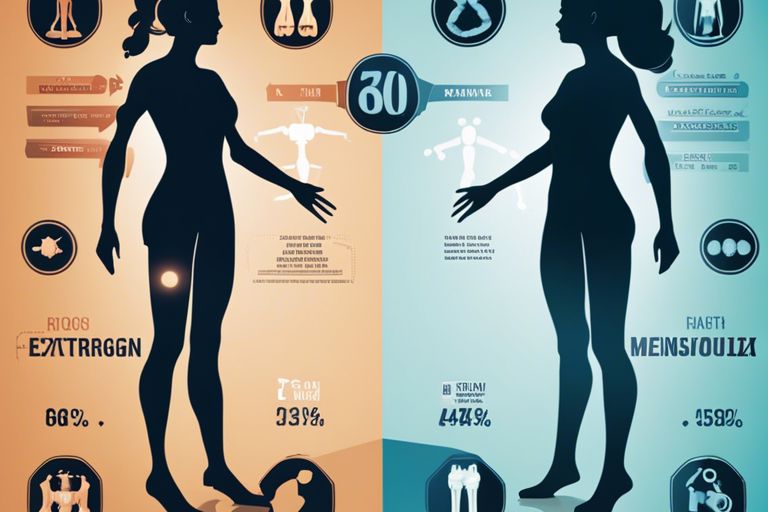Menopause is a natural part of a woman’s ageing process, typically occurring in her late 40s or early 50s. Along with various physical and emotional changes, menopause also brings about shifts in a woman’s sexual health. Understanding and addressing these changes are crucial for maintaining a fulfilling and satisfying sex life during this stage of life. In this blog post, we will explore the effects of menopause on a woman’s sexual health, common challenges faced, and practical ways to address and overcome them. Armed with knowledge and strategies, women can navigate through this transition with confidence and embrace a positive sexual well-being post-menopause.
Key Takeaways:
- Menopause marks a significant change in a woman’s life, bringing about hormonal shifts that can affect her sex life and overall well-being.
- Open communication with a partner is important in managing the physical and emotional changes that come with menopause.
- Exploring different strategies such as lubricants, hormone therapy, and counselling can help tackle the challenges of reduced libido and vaginal dryness during menopause.
- Staying physically active and maintaining a healthy lifestyle can positively impact sexual health and alleviate some menopausal symptoms.
- Seeking professional guidance from healthcare providers, including gynaecologists, can provide tailored solutions for managing menopausal symptoms and sexual challenges effectively.
Biological Changes during Menopause
Hormonal Shifts and Their Effects
During menopause, the hormonal balance in a woman’s body goes through significant changes. The levels of oestrogen and progesterone decrease, leading to common symptoms such as hot flushes, night sweats, and mood swings. These hormonal shifts can also impact bone density, cardiovascular health, and overall well-being.
Physical Changes in the Reproductive System
Alongside hormonal changes, menopause brings about physical changes in the reproductive system. The ovaries produce less oestrogen and no longer release eggs, leading to the end of menstruation. This transition, known as perimenopause, can result in symptoms like vaginal dryness, decreased libido, and thinning of the vaginal walls.
It’s vital for women going through menopause to be aware of these physical changes and their effects on their bodies. Consulting with healthcare professionals can help manage symptoms and navigate this stage of life with more comfort and understanding.
Psychological and Emotional Aspects
Self-Image and Menopause
Menopause can bring about significant changes in a woman’s body, which may impact her self-image and confidence. Fluctuating hormone levels can lead to symptoms such as weight gain, changes in skin texture, and hot flushes, all of which can affect how a woman perceives herself. It is important for women going through menopause to focus on self-care and self-acceptance during this transition period.
Navigating Intimacy and Relationships
Menopause can also have an impact on intimacy and relationships. Changes in libido, vaginal dryness, and mood swings can all contribute to challenges in maintaining intimacy with a partner. Communication and understanding are key in navigating these changes, as both partners need to be patient and supportive of each other’s needs. Seeking the advice of a healthcare professional or therapist can also be beneficial in addressing these issues.
Addressing Sexual Health Challenges
Medical Interventions and Therapies
Pertaining to addressing sexual health challenges during menopause, medical interventions and therapies can play a crucial role in managing symptoms. Hormone replacement therapy (HRT) is a common treatment prescribed to alleviate vaginal dryness, low libido, and other issues related to menopausal changes. It works by supplementing the body with oestrogen and/or progesterone to help rebalance hormone levels and improve sexual function.
Lifestyle Adjustments and Remedies
Aside from medical interventions, lifestyle adjustments and remedies can also greatly impact sexual health during menopause. Simple changes such as regular exercise, a healthy diet, and stress management techniques can help improve overall wellbeing and alleviate menopausal symptoms, including those affecting sexual function. Additionally, incorporating mindfulness practices or seeking counselling can address any psychological barriers that may be impacting sexual health.
Conclusion: Sex and Menopause – Addressing Changes and Challenges
Menopause brings about significant changes in a woman’s body, including in their sexual health. Addressing these changes and challenges is necessary to ensure that women can continue to enjoy a satisfying sex life as they age. Communication between partners, seeking professional help, and exploring different techniques and products can all contribute to finding solutions to the issues that may arise during this stage of life. Understanding that these changes are a natural part of the ageing process and that there are ways to navigate them can empower women to take control of their sexual well-being during menopause.
FAQ
Q: What changes can occur in a woman’s sexual health during menopause?
A: During menopause, women may experience a decrease in libido, vaginal dryness, and discomfort during sex due to hormonal changes.
Q: How can menopause affect a woman’s emotional well-being?
A: Menopause can lead to mood swings, irritability, and feelings of anxiety or depression due to hormonal fluctuations.
Q: What can women do to address vaginal dryness during menopause?
A: Women can use lubricants during sex, explore hormone replacement therapy options, or discuss prescription treatments with their healthcare provider.
Q: Is it common for women to experience challenges with intimacy during menopause?
A: Yes, many women may face challenges with intimacy during menopause due to physical discomfort, changes in libido, or emotional concerns.
Q: How can partners support each other through the changes and challenges of menopause?
A: Partners can communicate openly about concerns, explore new ways to connect intimately, seek professional guidance if needed, and show patience and understanding towards each other’s needs.





